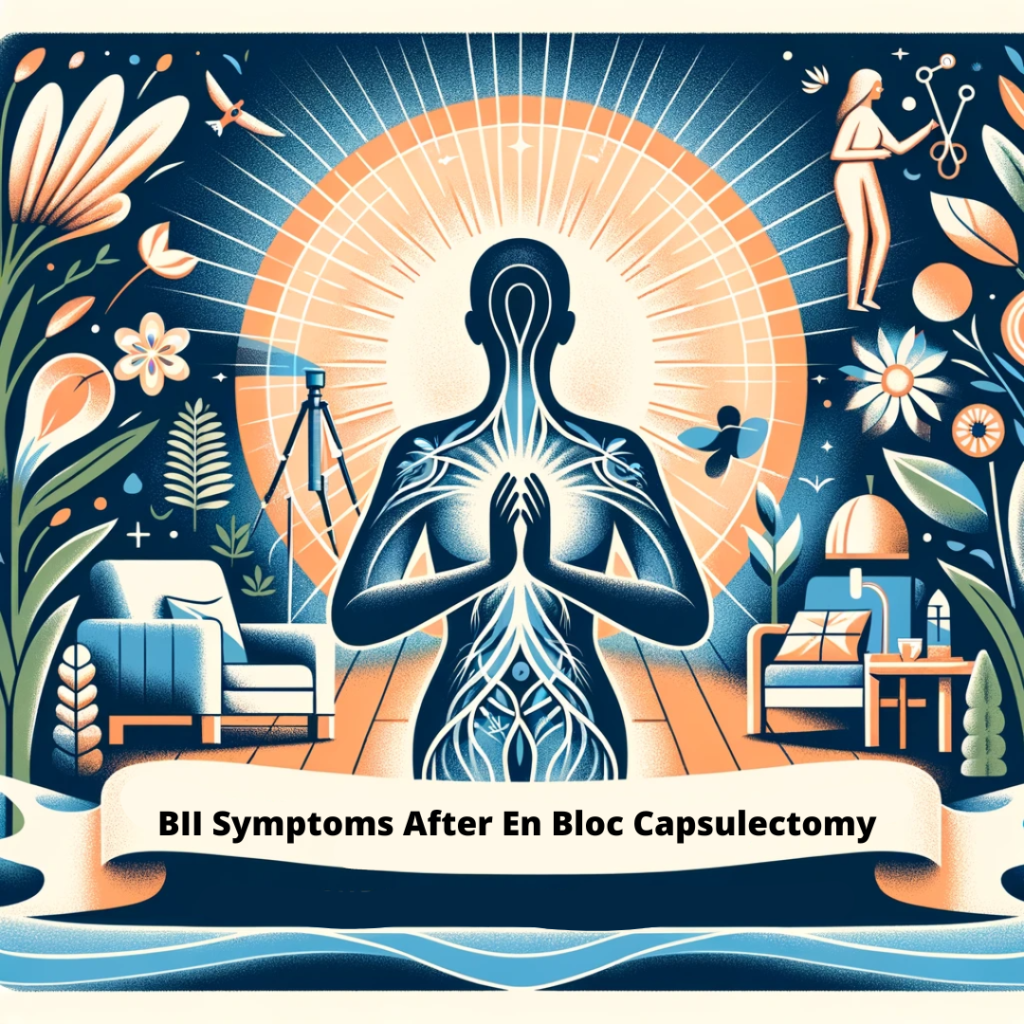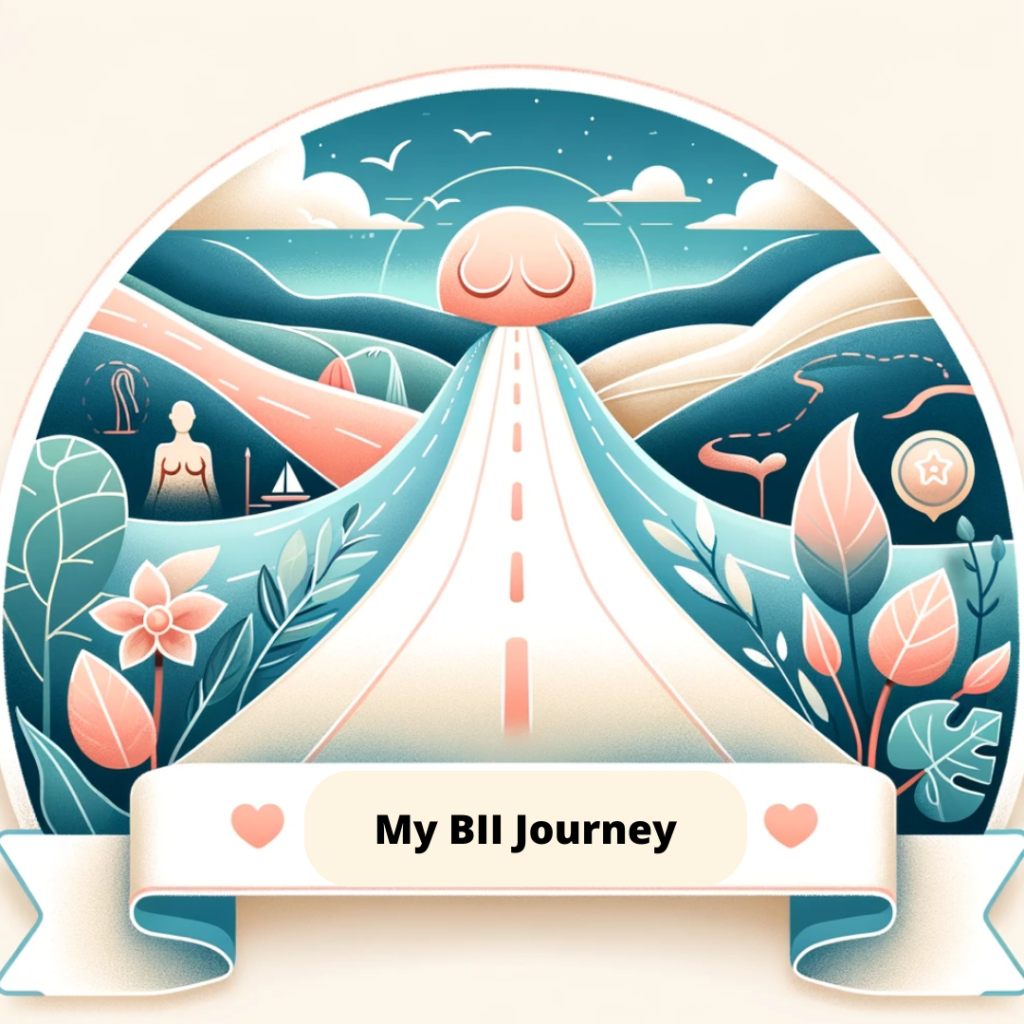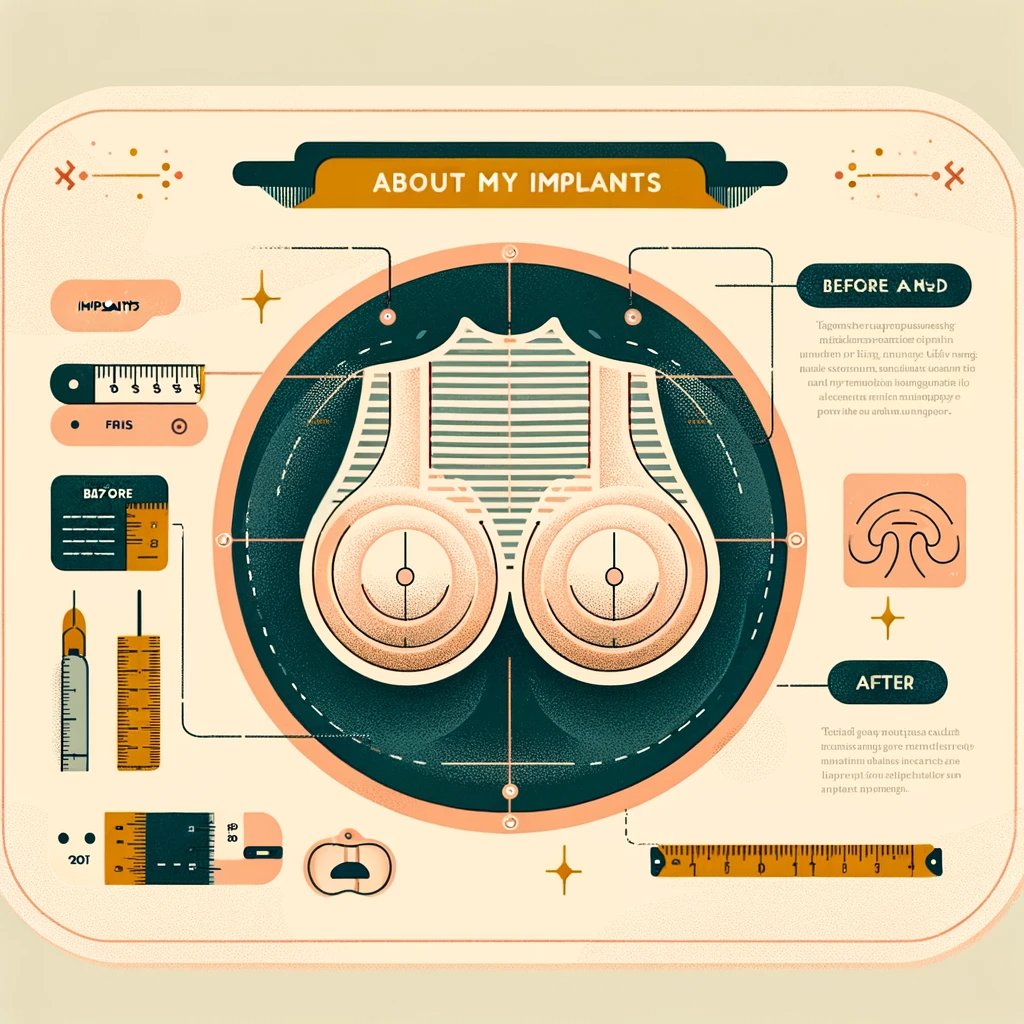Surgery & Recovery
Breast Implant Removal with En Bloc Capsulectomy
Disclaimer: I want to make it clear that I am not a medical professional who specializes in BII or similar health problems, and the information shared on this website is not intended as medical advice. I am sharing my personal journey and experiences with Breast Implant Illness (BII) to provide support and awareness. The content on this website should not be considered a substitute for professional medical advice, diagnosis, or treatment.
“Don't hog your journey. It's not just for you.”
Hoda Kotb, NBC Show Host
Recalling life-changing advice a stranger gave her.
Cost of BII
INSURANCE DID NOT COVER ANY of my surgery.
From January 2023 - May 2023 (5 months), I've accrued over $12,000.00 in out-of-pocket medical bills that my insurance does NOT cover (not to mention the interest we're paying each month while we work to pay that amount off). Those medical bills were explicitly tied to my BII symptoms and the removal of the implants.
It’s important to note that BII is not a medically recognized condition, and the symptoms are usually considered self-reported. The relationship between symptoms and breast implants is still a subject of ongoing research and debate in the medical community.
When it comes to insurance coverage for issues related to breast implants, including BII, the situation can be complex. Most insurance policies do not cover elective cosmetic surgery or its complications. However, if breast implants were part of reconstructive surgery, such as after a mastectomy, some insurance policies might offer different coverage.

My procedure: I opted for a breast implant removal with en bloc capsulectomy, no breast lift.
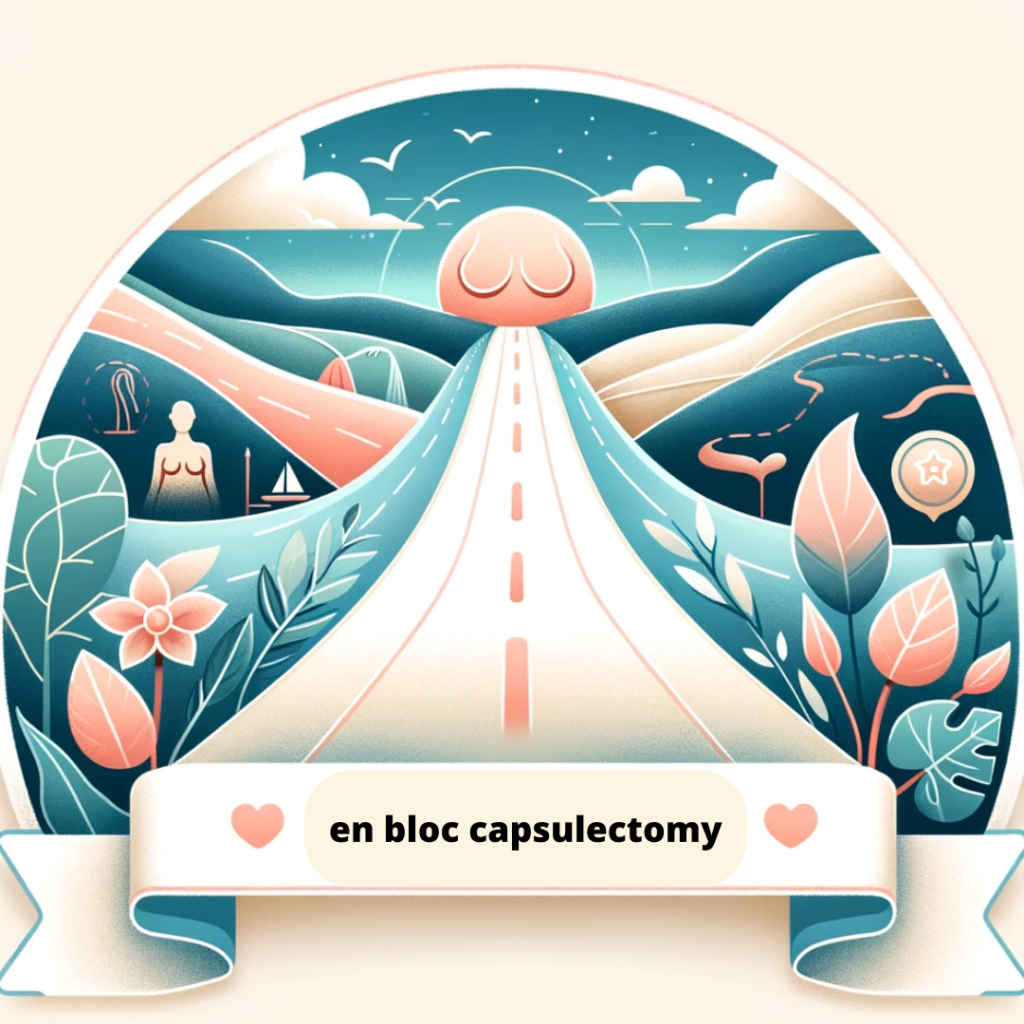
"Strength does not come from physical capacity. It comes from an indomitable will." – Mahatma Gandhi
Why I picked the en bloc capsulectomy
I wanted it ALL OUT OF MY BODY in ONE unit!
En bloc is a French term that literally translates to “all together” or “as a whole.” An en bloc capsulectomy refers to a method of breast implant removal that removes the scar tissue capsule and the breast implant all at once, without opening the capsule. –albertandresmd.com
I chose to have the en bloc capsulectomy because:
1.) I wanted everything removed that could potentially be causing me problems. A capsulectomy removes the capsule (scar tissue) that forms around breast implants.
2.) I wanted to minimize the chance of any fluid, silicone, bacteria, chemicals, and other potential pathogens from leaking out of the capsule and touching my body. The en bloc capsulectomy removes both the implant and capsule together without opening the capsule and exposing the implant.
3.) Other severe diagnoses like BIA-ALCL state the en bloc method is recommended to help minimize the risk of exposing cancer cells to the rest of the body. That tells me there is a risk to someone’s health if it’s not done this way. Therefore, to minimize my risk, even though I was not diagnosed with BIA-ALCL, I chose to have the “preferred” (en bloc capsulectomy) method done.
I did not have a breast lift.
I did not have a breast lift done after the explant. I wanted to minimize cutting, scars, and complications. I was okay with the idea of “saggy boobs” because my main focus was feeling better, not what I looked like. My surgeon completely supported my decision and said we could talk about options (lift, fat transfer, etc.) after one year of letting my body heal if I wanted to discuss it.
Pre-Op: Before Explant Surgery
Everyone's plan will be different. Here are highlights and tips from my pre-op experience.
Guidelines: Typical preoperative guidelines provided by the surgeon and his team (showering with a specific solution, NPO after midnight, eliminating certain medications, etc.). Follow your own surgeon’s recommendations.
My Tips:
- Plan to be out of commission for a few weeks. I had two young children at the time of surgery, and I needed everyone to understand that I would not be available to perform my routine tasks.
- Here are a few tips to do BEFORE surgery that made my life and my family’s more manageable.
- Move dinnerware to the bottom shelf. I could not reach up, so it helped to have plates, bowls, and cups down below.
- I Saran Wrapped my kid’s upper arms down to the rest of their upper body, and I asked them to “reach up” and get me something. When they could not reach above their head, they better understood what I meant by saying, “I won’t be able to reach and get things down for you (or myself).”
- Place a case of water, or whatever beverages you prefer, on the ground of the room you are recovering in.
- Print out materials to log your medication, drain outputs, etc. Check out my “Must-Have” recommendations for printables.
- Eat a healthy diet at least three days before surgery, mainly focusing on whole foods and protein. See my “Must-Have” page for more nutrition recommendations.
- Style your hair to stay that way for at least a week or easy for someone else to help you with. I couldn’t reach over my head for one week, which made it impossible to do my hair. I opted for a French braid for surgery, which worked out great.
- Purchase a nice post-op bra. The surgery center will most likely give you a post-op bra, but they usually aren’t comfortable. Check out my bra recommendation in my “Must-Have” section.
- Buy different ice packs, as you’ll want to have some in the freezer ready while using a pair. See my recommendations in the “Must-Have” section.
- Have a lot of pillows on hand, different sizes and shapes, as you’ll need a lot of pillows for your recovery. Check out the “Must-Have” section for recommendations.

"Healing takes courage, and we all have courage, even if we have to dig a little to find it." – Tori Amos
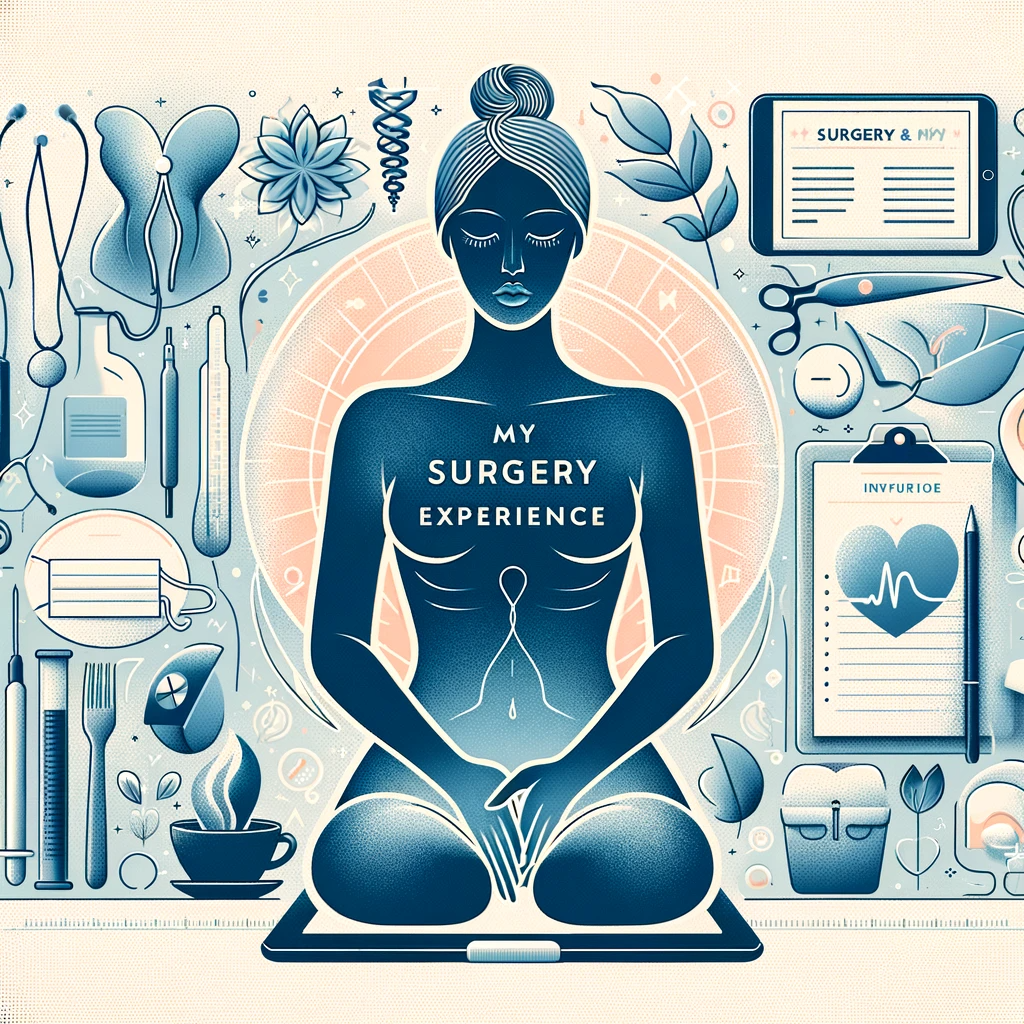
"The human capacity for burden is like bamboo – far more flexible than you'd ever believe at first glance." – Jodi Picoult
Surgery & Recovery after en bloc capsulectomy
Everyone's surgery experience will be different. I'm here to share my experience:
My recovery took approximately eight weeks before I felt completely back to normal (no pain).
- My surgery was an outpatient procedure (I went home the same day).
- I was given a short-term prescription for pain medicine.
- Lifting restriction of 15 pounds for seven (7) days post-op.
- No lifting arms for one (1) week. Limit the use of arms for the first two days after surgery.
- No driving an automobile for at least one (1) week
- I had two (2) drains placed after surgery. I had to record the drain output every day.
- The drains were removed roughly two (2) weeks after surgery.
- Unable to exercise for the first 14 days (per my surgeon), but I did try to get up and walk every few hours to prevent blood clots.
- Avoid intense exercise for 4-6 weeks post surgery.
- I was sore for at least the first 6-8 weeks post-surgery.
- I didn’t feel back to normal (no pain) until after eight (8) weeks.
- I was surprised at how long it took to return to my daily tasks without experiencing any pain.
- I ate a healthy diet after surgery, which includes at least one (1) protein drink per day to encourage healing. See the “Must-Have” section for more.
If you would like more information about my recovery tips and tricks, please look below.
My Recovery Experience: Tips for others considering en bloc capsulectomy
Everyone's post-op experience will be different after surgery, significantly depending on what type of explant procedure they opt for.
Here are some things I wish I knew about recovery and tips that helped with my en bloc capsulectomy recovery:
- You have to sleep on your back for six weeks post-surgery. I recommend specific pillows post-surgery.*
- You should have two (2) of your favorite recovery surgical bras (you’ll have one to wear while the other is being laundered).*
- You’ll want to avoid tight razor-back bras when converting out of your recovery surgical bra.*
- Have a set station that can be easily cleaned and house incision dressings and ointments.
- If you don’t like blood or body fluids, I recommend designating someone to help you with your drains (if you have them).
- Make sure you fully understand how to care for your drains before surgery.
- Write everything down! You think you’ll remember when you last took your medication, but you won’t.
- Set alarms for medication.
- Drink, drink, drink water to stay hydrated. Write down how much fluid you consume.*
- Incorporate protein, protein, protein to help you heal faster!*
- Random shocks of pain can be normal (they were for me). It’s your body’s nerve healing.
- If you’re prone to constipation, talk to your doctor about remedies, as pain medicine can cause constipation.
- Have a secure stool to help you get in and out of bed if your bed sits up high. You won’t be able to use your arms to help you up.

"It does not matter how slowly you go as long as you do not stop." – Confucius
BII Symptoms After Explant
Everyone's journey will be different. Here is what I noticed almost immediately after my en bloc capsulectomy surgery:
The symptoms listed below improved drastically between day one (1) and six (6) weeks post-explant surgery. After those six (6) weeks, my symptoms continued to improve and/or not return at all.
- Immediate return of natural oils to my skin, especially my face and scalp.
- Increased energy
- Less fatigue
- No more swollen joints
- No more muscle pain
- No heart problems or irregularities
- No skin rashes
- Increased sensation in the breast
- Less hair loss
- No numbness or tingling in limbs
- No more burning fingertips
- No more dizziness or vertigo
- No more migraines
- No more shortness of breath
- Mouth sores healed, and no more have arrived
- Acne cleared
- Improved body temperature regulation
Life After Implant Removal
I feel like a whole new person!
Personal Reflections:
- My initial feelings following surgery were relief and hopefulness.
- I’m pleasantly surprised at how quickly my symptoms disappeared, and I began feeling better.
- I’m so happy with my surgery and results. I wouldn’t change any of it. I am glad I went with the en bloc capsulectomy. I am delighted I didn’t have a lift.
Physical Changes and Improvements:
- I am surprisingly more confident in my body now than I was over the last few years with my implants.
- I’ve come to accept and love my small breasts.
- Yes, my breasts sag more now than before, as I did not have a lift, but it’s nothing that a bra can’t take care of.
- I wouldn’t change my decisions about getting a lift done. I am happy I did not have a breast lift done.
- I am happy with the sensation that returned to my breasts after surgery.
Emotional and Psychological Impact:
- The removal surgery has dramatically impacted my mental health and emotional well-being. I feel a sense of liberation, improved self-esteem, and happiness.
Lifestyle Changes:
- I am now able to fully enjoy life as I now have the energy to do so.
- Without all of the pain and fatigue, I’ve been able to truly enjoy my time with family and friends.
Lessons Learned and Personal Growth:
- The medical community doesn’t have all of the answers.
- Trust your gut, even if doctors tell you you’re wrong.
- Get a second opinion. Get a million opinions.
- I’m not crazy. You’re not crazy.
- Don’t stop searching for answers.
- I know my body better than anyone else. If something isn’t right, get help.
Find help and support. You don’t have to go through this alone.
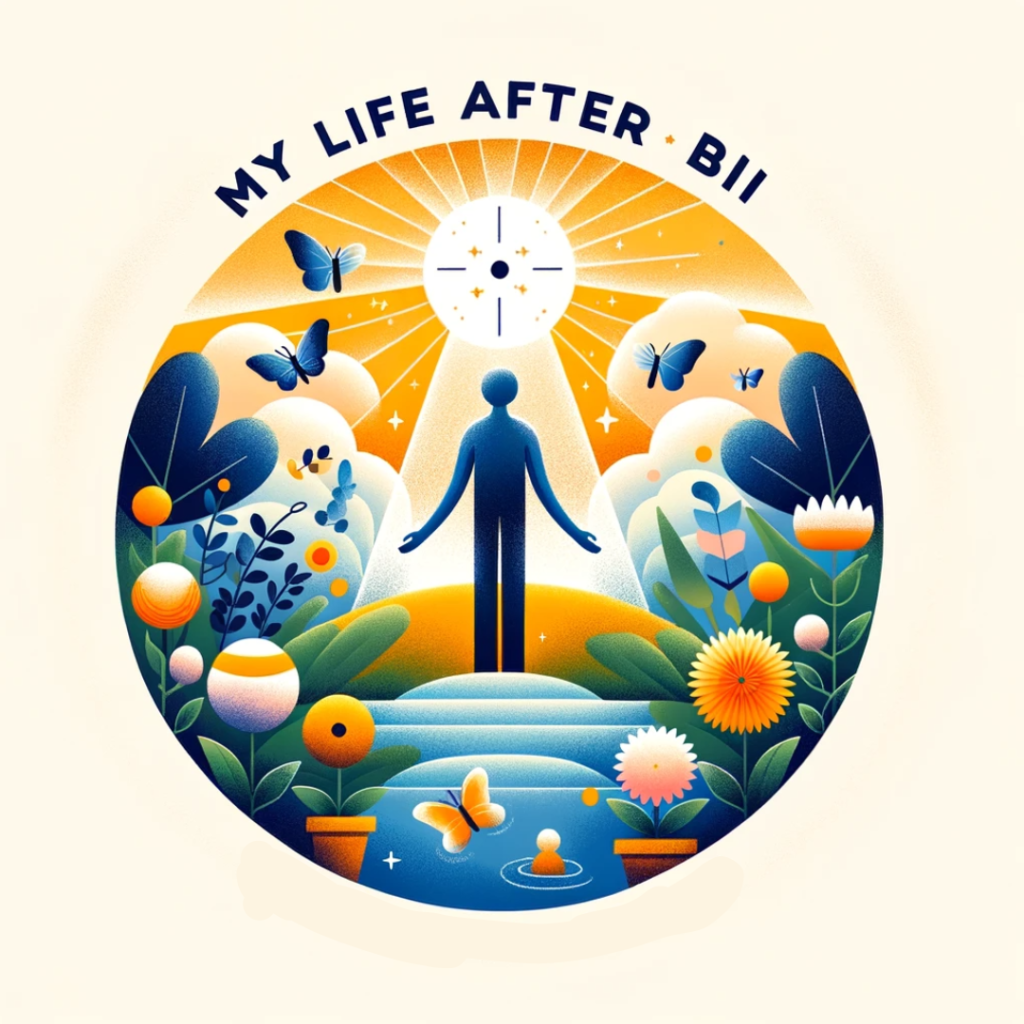
"Do not wait for leaders; do it alone, person to person." – Mother Teresa

"You never know how strong you are until being strong is your only choice." – Bob Marley
Final Take Away - My BII Journey
Looking Forward
As I turn the page on this significant chapter of my life, I look towards the future with a renewed sense of hope and purpose. The journey through Breast Implant Illness and the decision to remove my implants has not only been a journey of healing but also one of profound self-discovery.
In the wake of this experience, I’ve learned to listen more closely to my body, trust my instincts, and prioritize my health in ways I never did before. It’s a newfound respect for myself and my well-being that I plan to carry forward in all aspects of my life.
I am more committed than ever to spreading awareness about BII. By sharing my story, I hope to be a voice for those who feel unheard, a source of information for those seeking answers, and a beacon of hope for those struggling. I plan to engage more actively with online communities, participate in support groups, and collaborate with health organizations to advocate for greater recognition of BII.
Looking ahead, I see a future where my experiences empower me to help others. Whether through informal chats, blog posts, or speaking engagements, I am dedicated to making a difference. The path ahead is not just about my journey but helping others navigate theirs with fewer obstacles.
Above all, I look forward to embracing life with a heart full of gratitude and strength. My journey with BII has taught me the value of resilience and the power of a supportive community. As I continue to heal and grow, I am excited about the possibilities that lie ahead – not just for myself but for the many lives I hope to touch along the way.
Here’s to a future filled with health, understanding, and meaningful connections. -Amie
Continue Reading About My Journey:
Disclaimer
The content on this website should not be considered a substitute for professional medical advice, diagnosis, or treatment.
I want to make it clear that I am not a medical professional who specializes in BII or similar health problems, and the information shared on this website is not intended as medical advice. I am sharing my personal journey and experiences with Breast Implant Illness (BII) to provide support and awareness. The content on this website should not be considered a substitute for professional medical advice, diagnosis, or treatment.
If you have concerns about your health or believe you may be experiencing symptoms related to BII or any other medical condition, I strongly encourage you to consult with qualified healthcare professionals. They can provide you with the appropriate guidance and medical advice tailored to your specific situation.
By sharing my story, I hope to provide insights, offer support, and foster a sense of community for those who are seeking information and connections related to BII. Please use the information on this website responsibly and in conjunction with the guidance of your healthcare providers.
Thank you for understanding, and I appreciate your support on this journey.
Warm regards,
Amie
